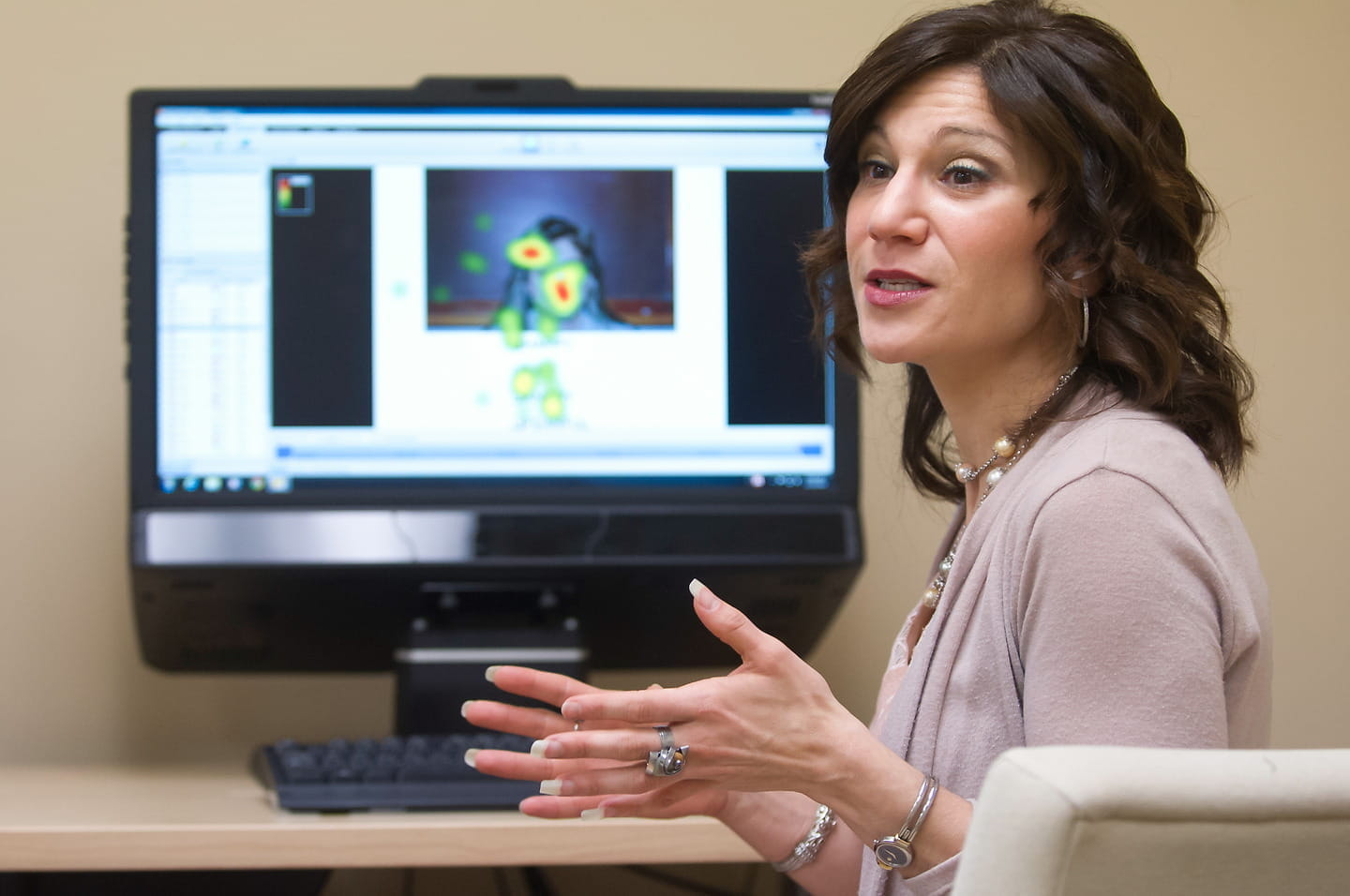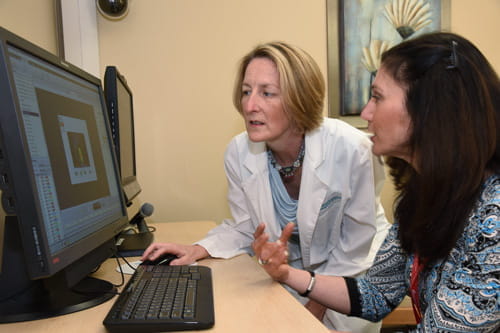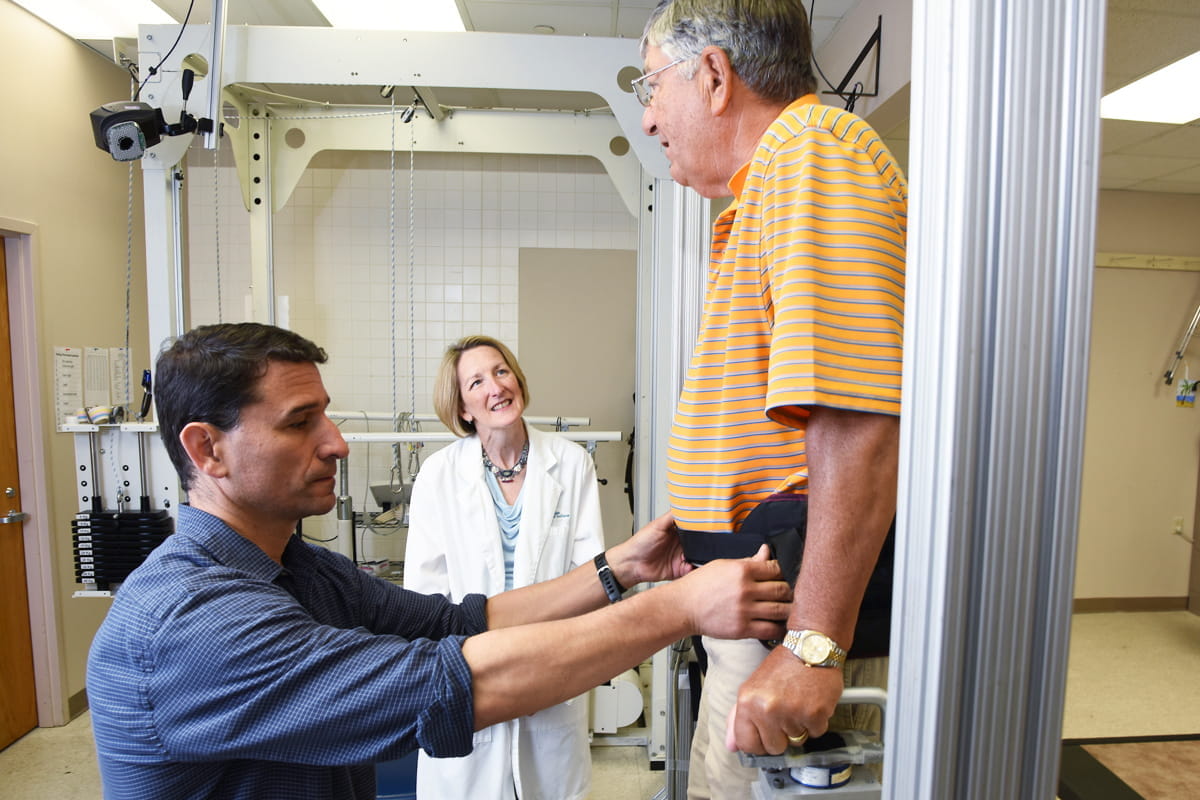Research in the Department of Physical Medicine and Rehabilitation (PM&R) at Indiana University School of Medicine makes life-changing recovery possible after injury and illness, focusing on diagnoses of brain injury, stroke, spinal cord injury, multiple sclerosis and musculoskeletal injuries. Through state-of-the-art facilities and innovative approaches, IU’s world-class researchers help people walk, communicate, think, strengthen relationships and reclaim their lives.
The department’s investigators mentor residents, fellows and students through innovative research projects, fostering cross-disciplinary collaboration and shaping the next generation of clinician-scientists dedicated to improving lives through science and compassionate care.






